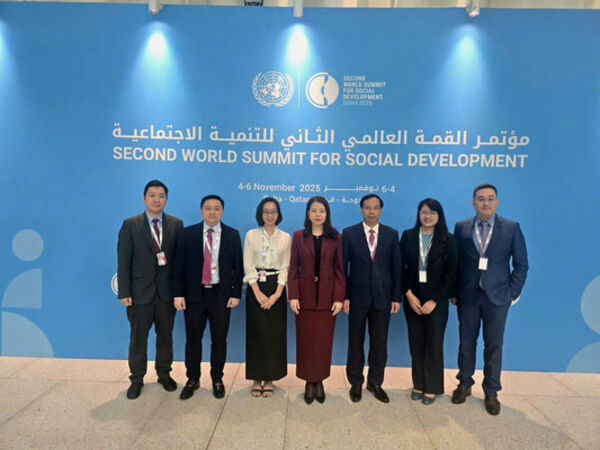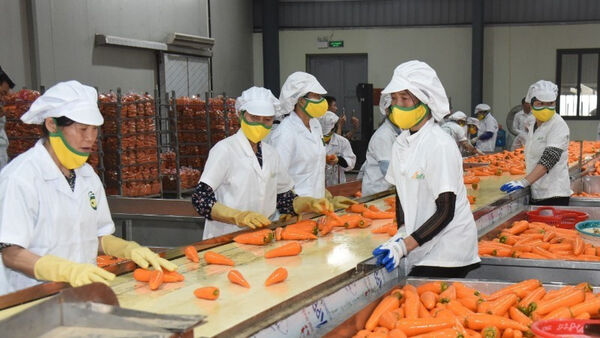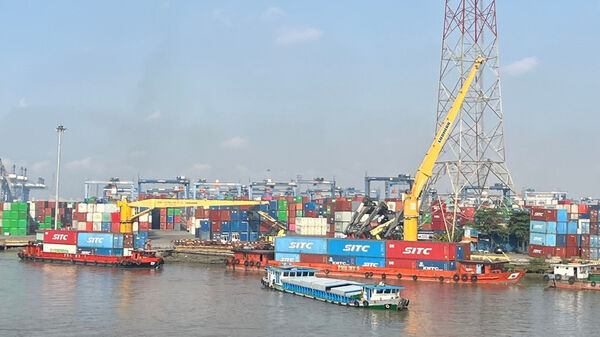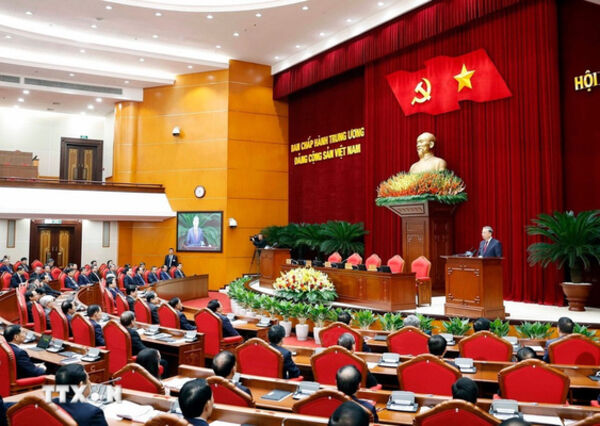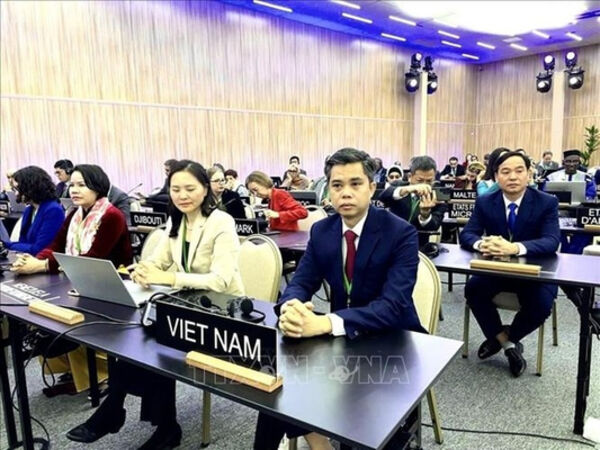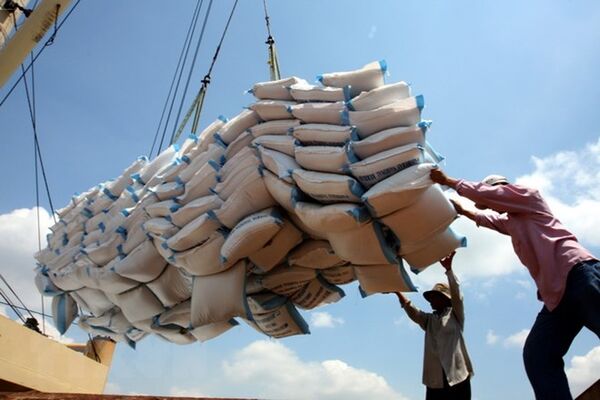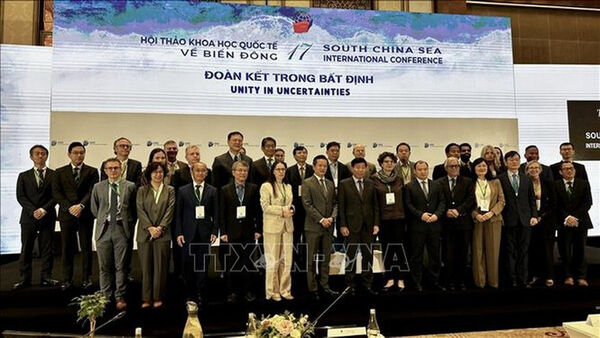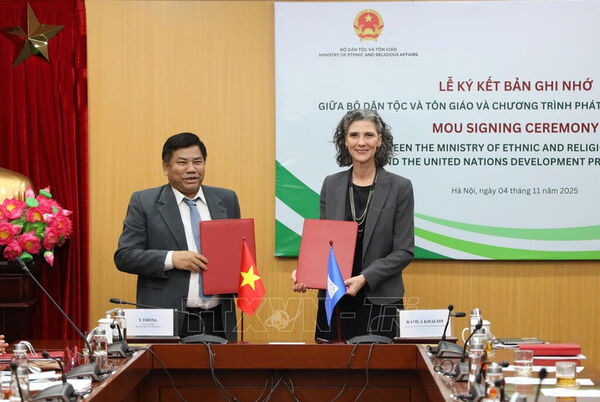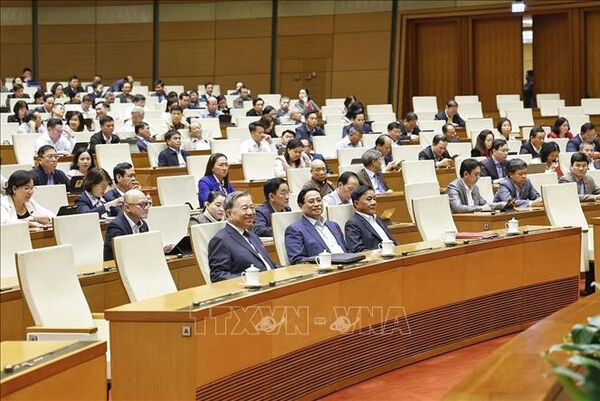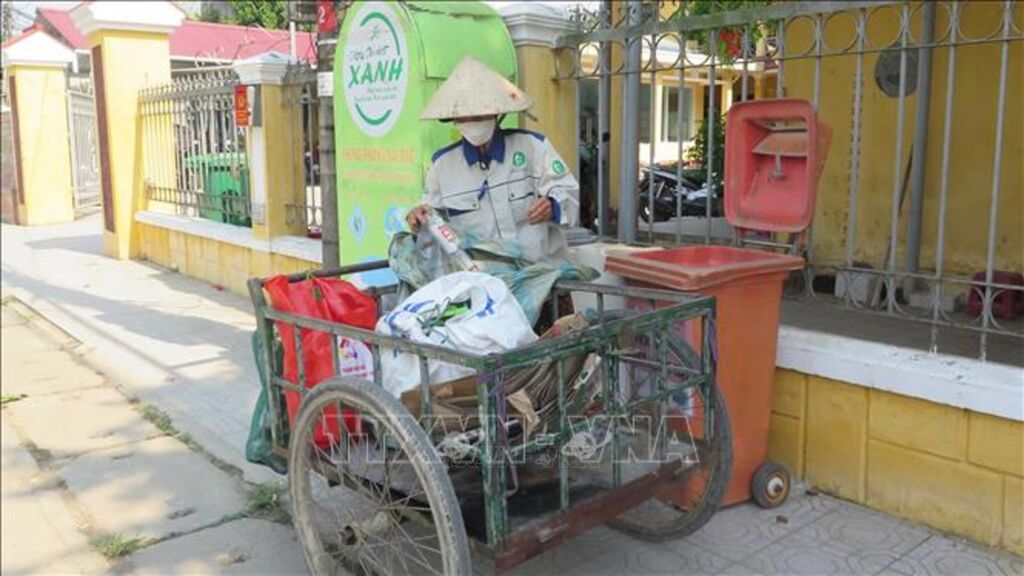 |
| Nguyen Thi Vang is the oldest member of the scrap-collecting cooperative group in An Dong ward in Hue city. (Photo: VNA) |
Hue (VNA) – A pioneering waste management model in the central city of Hue is transforming the lives of informal waste collectors, mostly women, and reshaping how the city approaches its circular economy goals.
Through the mGreen application, women who once earned their living by collecting recyclable waste have become “green warriors” connected to a digital recycling supply chain. The initiative is not only improving livelihoods and enhancing social status but also forming a sustainable waste circulation loop, reinforcing Hue’s image as a green city.
After an online meeting with members of the mGreen waste-collection cooperative, Truong Thi Xuan Mai, 63, from An Cuu ward, recalled the early days when only three out of ten members owned smartphones. “Now, everyone knows how to create collection orders, receive schedules via the mGreen Collector app, even join virtual meetings,” she said.
Launched in 2023 under the project “Hue – A Plastic Smart City in Central Vietnam”, funded by WWF-Norway through WWF-Vietnam, and implemented in partnership with the mGreen initiative, the project initially seemed ambitious. Yet, just two years later, the once-fragmented network of traditional scrap collectors has evolved into organised tech-enabled cooperatives across various wards. Residents can now schedule recyclable waste pick-ups from home, saving time while fostering a community habit of waste sorting.
Instead of cycling aimlessly through the streets, these women now operate with pre-booked orders and clear schedules – leading to a remarkable increase in income. Each completed order earns points on the app, which can be redeemed for shopping vouchers. Some of the cooperative’s profits are allocated to a revolving fund that provides small loans to members.
More than income, however, the model has restored confidence and dignity. Those who used to feel embarrassed about their work now know they are part of something bigger – they are helping build a greener, cleaner city. They also act as grassroots environmental ambassadors, guiding neighbours on how to sort and sell recyclables.
Under the 2020 Law on Environmental Protection, from 2025, waste sorting at source will be a mandatory responsibility for all individuals, replacing flat-rate waste collection fees with a pay-as-you-throw system. The mGreen digital collection model in Hue not only anticipates this policy shift but also enables households to earn extra income by properly sorting their waste.
So far, members of the city’s three tech-enabled scrap-collecting cooperatives have collected 180 tonnes of recyclables, 20% of which were plastics, through the mGreen platform. With nearly 4,000 collection orders processed – each averaging several dozen kilogrammes - their waste now flows into a connected online marketplace, the mGreen recyclable exchange, which links collectors with recycling plants and scrap buyers.
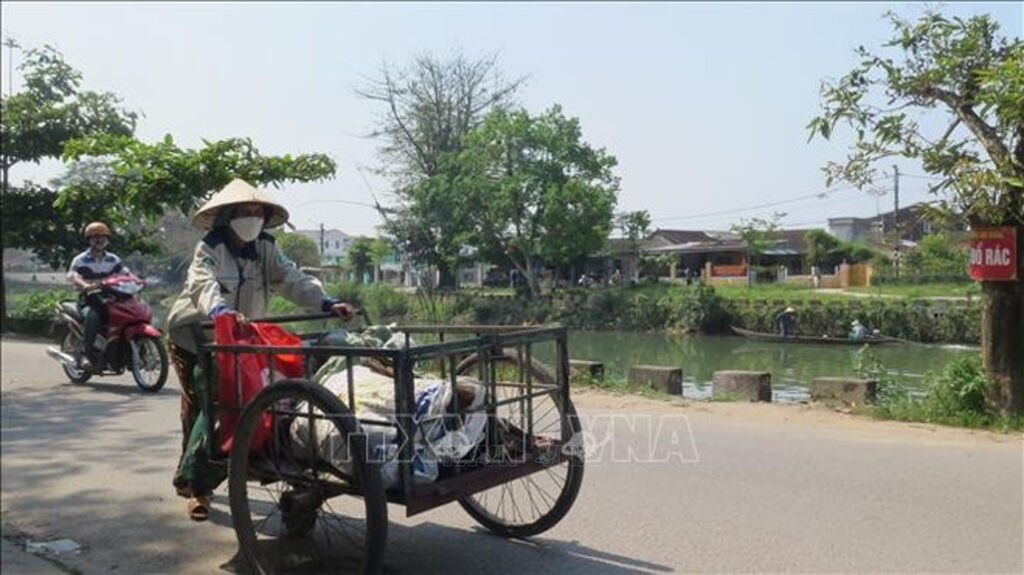 |
| Members of the scrap-collecting cooperative group tirelessly travel through every street of Hue city, collecting and purchasing discarded items regardless of the weather. (VNA File photo) |
According to Hoang Ngoc Tuong Van, the manager of the “Hue – A Plastic Smart City in Central Vietnam” project, the system ensures that discarded materials and packaging are delivered to certified recycling facilities. This creates a transparent mechanism that allows actors in the recycling supply chain, particularly those handling plastic waste, to benefit from financial contributions from producers and importers for their work, she explained.
By combining grassroots participation, digital technology, and supportive policy frameworks, Hue’s scrap-collecting cooperatives are proving that waste management can evolve into a sustainable value chain. The city is now moving beyond compliance with national regulations towards establishing a true circular waste economy, where waste becomes a resource./.
